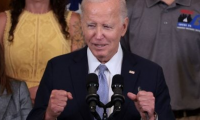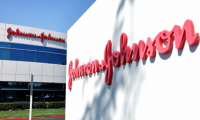-
Contentious Medicare price negotiations underway as US drug prices rise
- Source: drugdu
- 91
- February 7, 2024
-
Drug shortages challenge type 2 diabetes patients in the UK
- Source: drugdu
- 93
- January 30, 2024
-
Gilead Drug Fails Pivotal Lung Cancer Study, But Still Might Have Path Forward
- Source: https://medcitynews.com/author/fvinluan/
- 195
- January 24, 2024
-
Merck’s Keytruda again bags industry-first cervical cancer nod—with limitation
- Source: drugdu
- 91
- January 21, 2024
-
Across 25 industries, pharma staffers most satisfied with compensation
- Source: drugdu
- 95
- January 21, 2024
-
Cell Therapy Startup With Stanford Roots Unveils $75M to Seek Inflammation Cures
- Source: drugdu
- 112
- January 19, 2024
-
J&J, AZ/Daiichi Sankyo cancer therapies lead Clarivate’s annual rundown of notable new meds
- Source: drugdu
- 152
- January 19, 2024
-
US agency nixes Seagen patent, handing Daiichi Sankyo a win in long-running Enhertu entanglement
- Source: drugdu
- 146
- January 19, 2024
-
Manufacturing Issues Block Astellas From a First-in-Class Cancer Drug Approval
- Source: drugdu
- 224
- January 16, 2024
-
J&J Joins the Cancer ADC Dealmaking Spree With $2B Ambrx Acquisition
- Source: drugdu
- 136
- January 10, 2024
your submission has already been received.
OK
Subscribe
Please enter a valid Email address!
Submit
The most relevant industry news & insight will be sent to you every two weeks.













